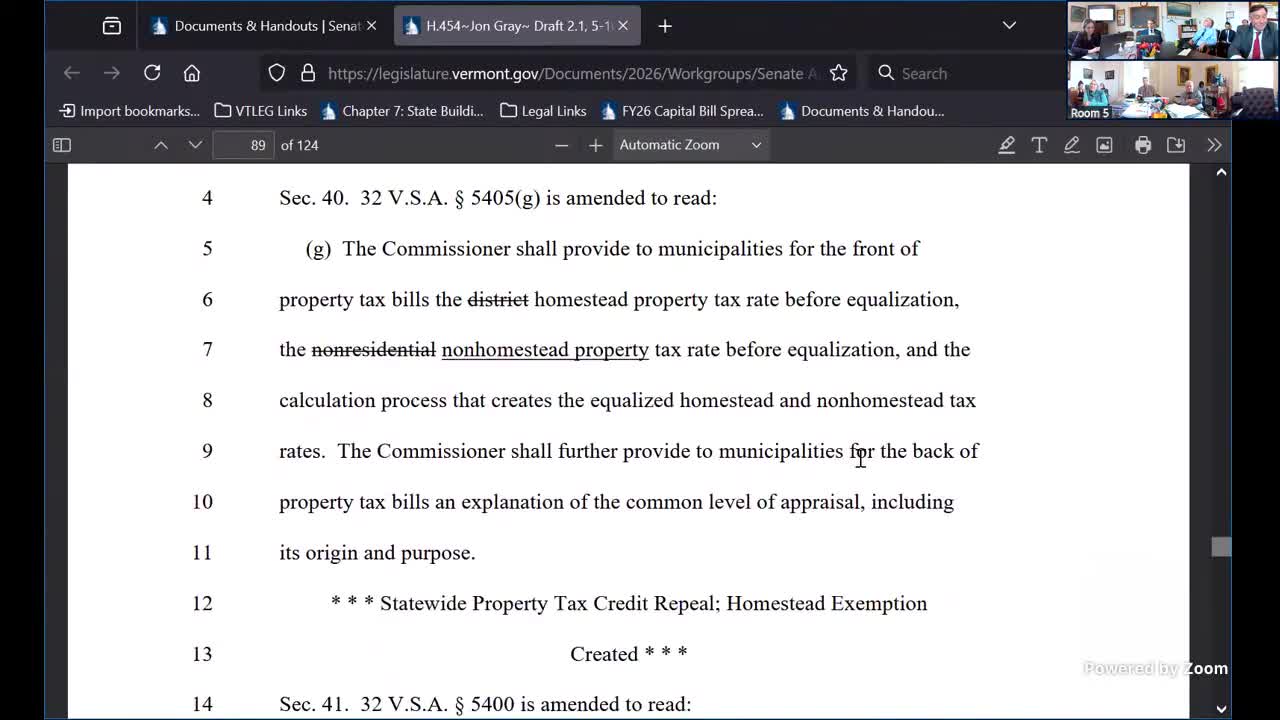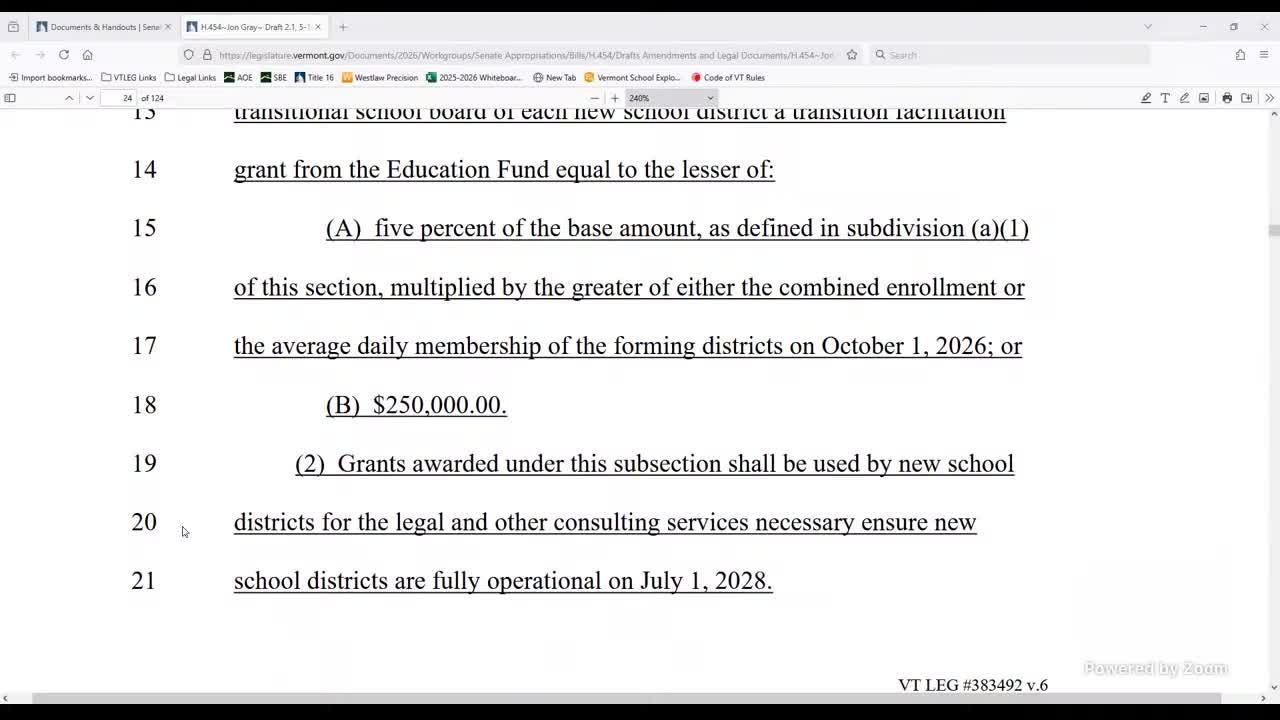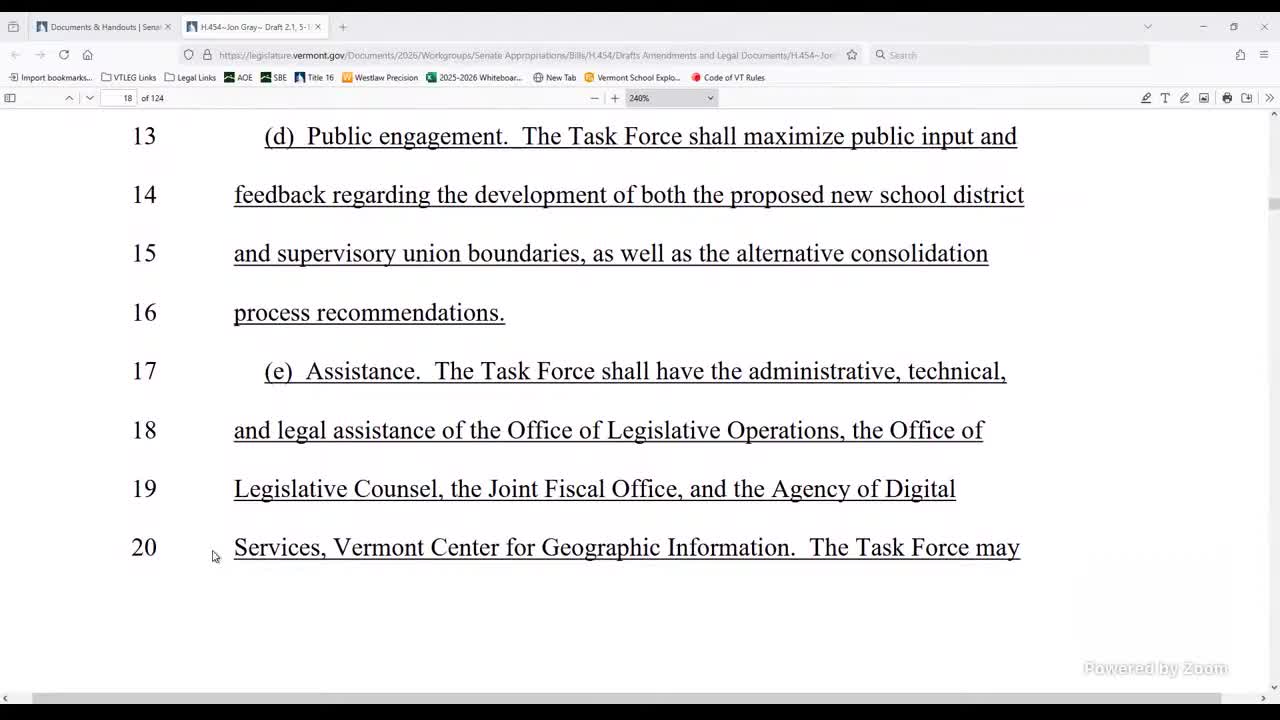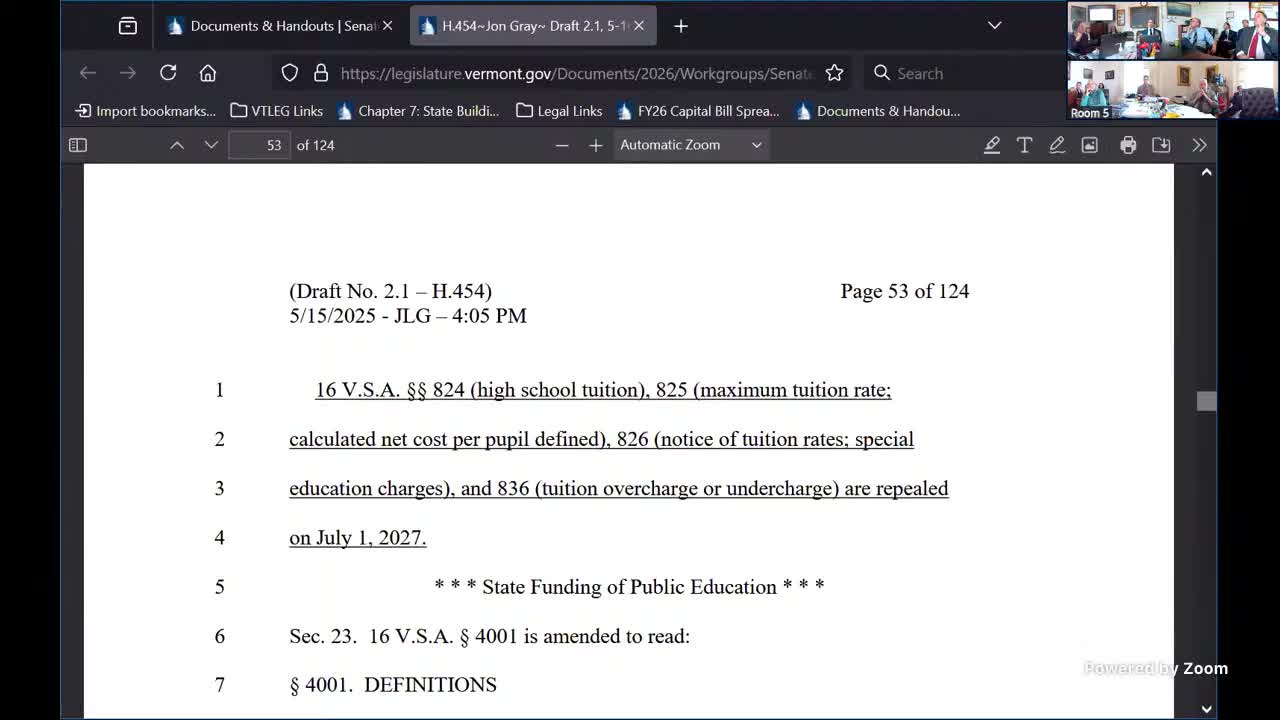Article not found
This article is no longer available. But don't worry—we've gathered other articles that discuss the same topic.

Committee adds implementation funding and staff positions to education bill; $4M transition package discussed

Senate finance language proposes homestead exemption to replace statewide property tax credit

Bill creates state school construction aid program and advisory board; details grants, eligibility and rulemaking authority

Committee hears plan for legislative task force to redraw district maps, create transitional school boards

